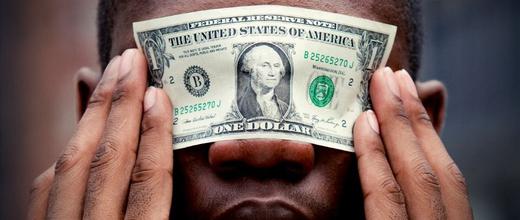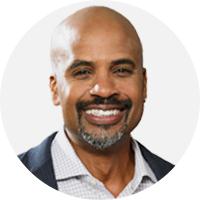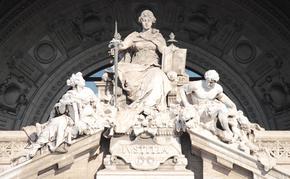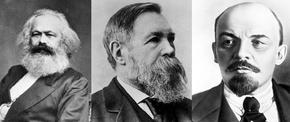The views expressed in our content reflect individual perspectives and do not represent the authoritative views of the Baha'i Faith.
When I was a boy, I lived in one of the working-class neighborhoods of New Orleans, Louisiana for a time. If you want to see the stark divides that race and economic class create, go to New Orleans.
My mother temporarily relocated there from New York, so I spent two years of my childhood in the sweltering heat of this southern port city on the banks of the mighty Mississippi river.
While there, I attended the New Orleans Center for Creative Arts (N.O.C.C.A.), a remarkable school that has produced an impressive number of accomplished artists including composer and trumpeter Winton Marsalis; pianist, vocalist and actor Harry Connick Jr. and actor Wendell Pierce among others.
Every weekday I would board the city bus from the two bedroom walk-up my mother and I shared on Esplanade Avenue near City Park. Downtown, I would transfer to the St. Charles streetcar that carried me through the Garden District, with its manicured lawns, old growth oak trees, wrought iron fences and opulent Victorian manors. Eventually, I would exit the lurching red and green trolley and walk towards N.O.C.C.A., in the old LaSalle school building on Perrier Street.
I loved making that trip. The eight mile ride between the marginalized neighborhood where I lived and the exclusive community of Uptown transported me between worlds: one black, one white; one rich, one poor; one bathed in privilege and opportunity, the other drowning in deprivation and privation. I knew which world I was tethered to. Attending N.O.C.C.A. placed me in relative proximity to wealth, but my mother and I lived at the margins, oscillating somewhere between the lower middle class and the poor.
In New Orleans, the city bus mediated between the competing realities of wealth and intergenerational poverty. It moved across borders, conveying its cargo – disproportionately black and brown people – from the impoverished communities of Desire and the Lower Ninth Ward to the well-heeled neighborhoods of Audubon; Marlyville-Fontainebleau; and the French Quarter.
I was too young to understand the intersectionality of race and economics, how systems of historic injustice conspired to deny access to mechanisms of agency and power. This was long before I began to devour books by Zora Neal Hurston; W.E.B. Dubois; Toni Morrison; Cornel West, Henry Louis Gates and others, to understand why African Americans as a whole, seemed to have so much less in a land of plenty.
It would be several years before I could see how the complexion of passengers boarding city busses and trains in major cities mirrored, in many ways, the hold of the slave ship. The number 94 Broad Street could have been the Zong; the Clotidia or the Amistad just a few generations before. The means of transport had changed, but the color of its contents had remained stubbornly the same.
During those two years in New Orleans, I was just a boy with my dreams, my backpack and sketchbook in tow, looking into the many black and brown faces around me, wondering how we all got here. I had no answers, only an image of economic segregation, an association of class with color, that gradually began to congeal in my mind. It shaped how I saw the world and helped to frame my place within it.
The Civil Rights Act of 1964 eroded the color line in public spaces, but it did little to redress the economic devastation visited upon the descendants of slavery. Black Americans comprise 12.1% of the U.S. population but, among ethnic groups, they have the highest rates of poverty at 27.4%. According to the Center for American Progress, in 2016, the median wealth for African American families was $17,600, compared with that of white families’ who have a median wealth of $171,000. Those tragic statistics reflect America’s appalling capacity to tolerate systemic injustice and inequity – along with an equally perverse iteration of economic racism and the mythology engineered to support its structure; one that indicts the poor and acquits a morally bankrupt society too ethically weak to bear the burden of its complicity in creating the conditions for intergenerational poverty in the first place.
The result: a psychological brutality that binds the universal vices of laziness, irresponsibility, and licentiousness to just one race, leaving the most marginalized among us bearing not only the burden of a lack of resources in a culture that equates money with self worth, but also with a destructive self-hatred that demoralizes and degrades:
It’s all right to tell a man to lift himself by his own bootstraps, but it is a cruel jest to say to a bootless man that he ought to lift himself by his own bootstraps. – Dr. Martin Luther King Jr.
The irony, of course, is that it was not the hands of the French, the Portuguese, the Dutch, the Spanish or the English who fed the cotton gin in Georgia, Alabama, and Texas; or cut sugar cane in the brutal tropical heat of Florida, Santo Domingo, and Puerto Rico. That American caste system was born on the bloody fields of the plantation; its engine greased by the noose and the whip; its baleful legacy, the enduring economic abyss along the color line.
How mystifying then, that in an age where celebrity is hailed as the apogee of achievement, where the acquisition of wealth and power is seen as a sacramental act, that a divine revelation, which elevates the station of servitude to the meridian of human development, that rebukes the excessive materialism of a decadent age and asserts the dignity of the poor, should enter the world and remind us of what the prophet Isaiah so powerfully stated; “that the ways of God are not the ways of men.” The Baha’i writings say:
… we must be the servants of the poor, helpers of the poor, remember the sorrows of the poor, associate with them; for thereby we may inherit the Kingdom of heaven. God has not said that there are mansions prepared for us if we pass our time associating with the rich, but He has said there are many mansions prepared for the servants of the poor, for the poor are very dear to God. The mercies and bounties of God are with them. The rich are mostly negligent, inattentive, steeped in worldliness, depending upon their means, whereas the poor are dependent upon God, and their reliance is upon Him, not upon themselves. Therefore, the poor are nearer the threshold of God and His throne. – Abdu’l-Baha, The Promulgation of Universal Peace, p. 33.
How extraordinary then, that in a period where men pride themselves on titles and the pomp and circumstance of position, that the Lord of the age, Baha’u’llah, should reveal to us the path towards true distinction:
The liberty that profiteth you is to be found nowhere except in complete servitude unto God, the Eternal Truth. Whoso hath tasted of its sweetness will refuse to barter it for all the dominion of earth and heaven. – Baha’u’llah, Gleanings from the Writings of Baha’u’llah, p. 335.
How astonishing then, that in a time when the acquisition of a noble character is a secondary consideration to the accumulation of material possessions, that a messenger of God should come to offer us the gift of everlasting riches:
The essence of wealth is love for Me; whoso loveth Me is the possessor of all things, and he that loveth Me not is indeed of the poor and needy. This is that which the Finger of Glory and Splendour hath revealed. –Baha’u’llah, Tablets of Baha’u’llah, p. 156.
How remarkable, that a boy on a certain bus, in a certain city, questioning his place in the world and the possibilities for his future, feeling the burden of his color and his circumstance, could find, in a few short words from a new prophet of God, his true worth:
O Son of Being! Thou art My lamp and My light is in thee. Get thou from it thy radiance and seek none other than Me. For I have created thee rich and have bountifully shed My favor upon thee. – Baha’u’llah, The Hidden Words, p. 6.

















Comments
Sign in or create an account
Continue with Facebookor